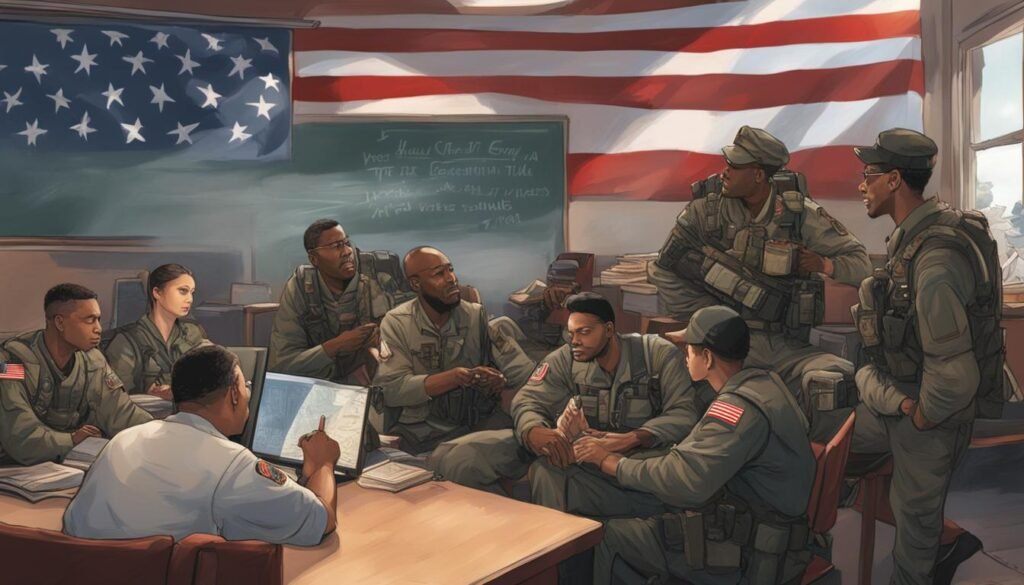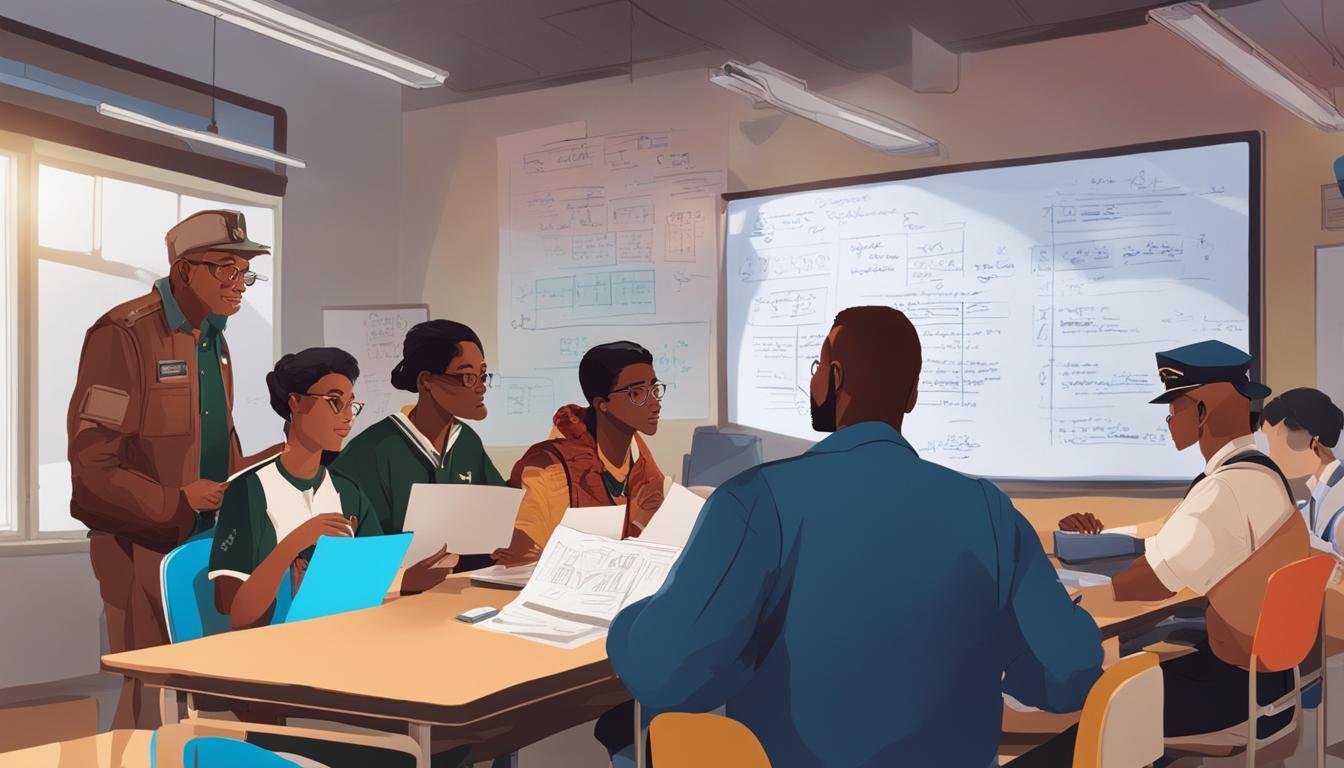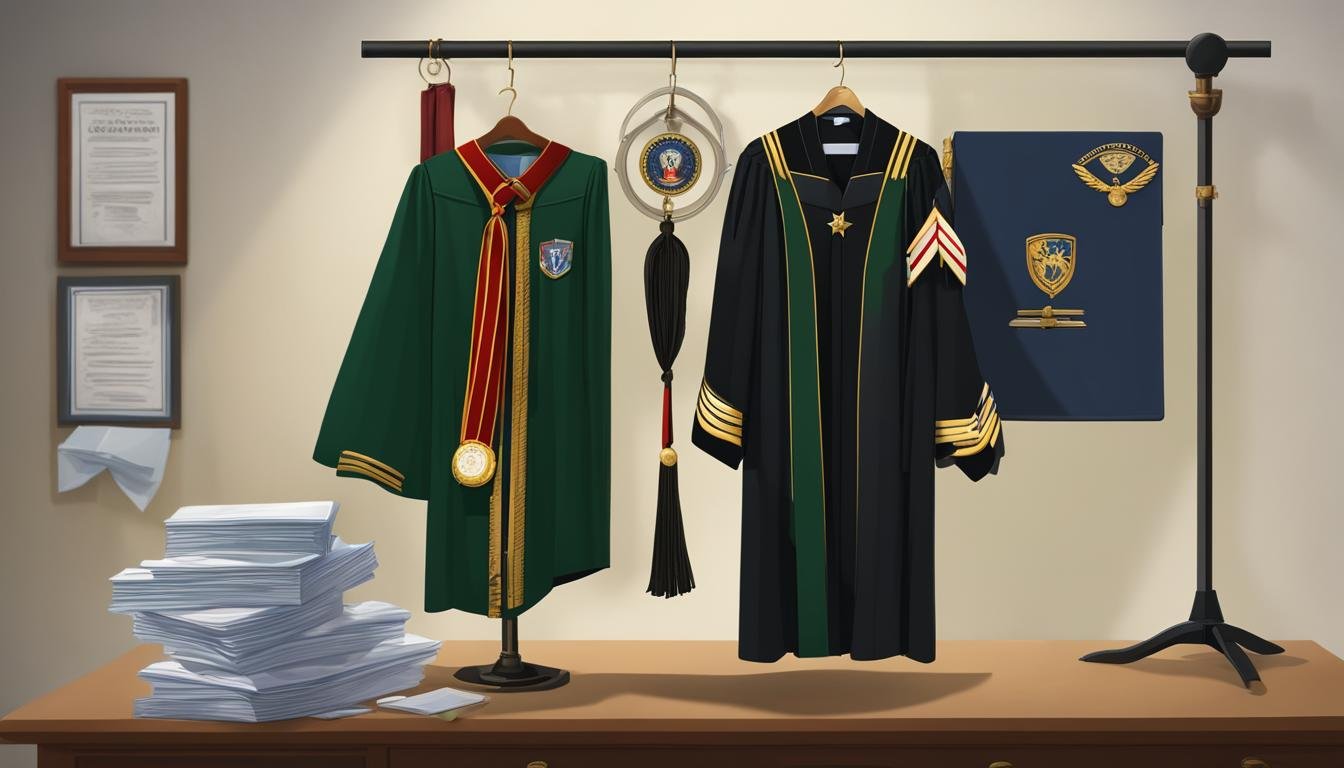Transitioning from the military to college can pose unique challenges for veterans, particularly when it comes to social integration on campus. Interactions with faculty members play a significant role in determining peer-group interactions according to a quantitative analysis of 87 veteran undergraduate students. Interestingly, this study found no gender-based differences in these interactions.
To ensure that veterans have a successful college experience and overcome social integration challenges, colleges should take specific measures. Establishing a dedicated student veterans office can provide essential support and resources. Additionally, offering resources to faculty and staff to enhance their military cultural competency can foster an inclusive environment. Finally, providing alternative modes for extracurricular activities and social interactions can help veterans connect with their peers on campus.
Key Takeaways:
- Interaction with faculty members significantly impacts social integration for veterans in college.
- No gender-based differences were observed in peer-group and faculty interactions.
- Colleges should establish a student veterans office to provide dedicated support.
- Enhancing military cultural competency among faculty and staff can contribute to a more inclusive campus environment.
- Offering alternative modes for extracurricular activities and social interactions promotes social integration.
Challenges Faced by Student Veterans

Student veterans face a unique set of challenges when transitioning to college. While their discipline, focus, and leadership skills often result in higher GPAs and higher graduation rates, there are still hurdles to overcome. One major challenge is the lack of understanding from campus administrators, professors, and fellow students. Student veterans often feel that their experiences and challenges are not fully recognized or appreciated.
Being a first-generation college student can also pose additional challenges for student veterans. They may lack the support and guidance that comes from having family members who have gone through the college experience. Balancing family responsibilities can be another struggle, especially for those who are married or have children. Juggling the demands of school, work, and family can be overwhelming.
Additionally, student veterans may face specific physical, learning, and emotional challenges related to their military service. Physical injuries, such as traumatic brain injuries or loss of limbs, can make it more difficult to navigate the campus environment. Learning disabilities or post-traumatic stress disorder (PTSD) can impact academic performance and overall well-being. Dealing with these challenges while trying to socialize and integrate into college life can be a daunting task.
Student Veteran Quotes:
“It’s frustrating when people assume that military service automatically makes you an expert in everything. They don’t understand that we still need support and guidance, just like any other student.” – John, Navy veteran
“I feel like I’m constantly playing catch-up. I have to balance my coursework with taking care of my kids and attending events for the student veterans group. It’s a lot to handle.” – Emily, Army veteran
In order to address these challenges and support student veterans, colleges and universities need to provide resources and services tailored to their unique needs. By offering targeted support, colleges can increase the chances of a successful transition and integration into campus life.
How Can Veterans Better Integrate into a College Setting Using Their GI Bill Benefits?
Veterans can smoothly integrate into college using their GI Bill education benefits. These benefits cover tuition, housing, and other expenses, easing their transition into academic life. With the support of gi bill education benefits for veterans, they can focus on their studies and make the most of their college experience.
Resources for a Successful Transition
To ease the transition and enhance social integration, there are several resources available for student veterans.
Most colleges have a veterans support office that can provide guidance on accessing financial benefits, health care, and other resources. This valuable support system can help you navigate the challenges of college life and ensure that you have the necessary tools to succeed.
The Student Veterans of America is a national nonprofit organization that helps veterans achieve their educational goals and offers chapters at over 1,500 colleges. By joining and participating in this organization, you can connect with fellow student veterans, get involved in campus activities, and gain access to additional resources specific to your needs.
In addition, the American Council on Education can assist you with getting academic credit for your military service, making your transition to college smoother and potentially reducing the time it takes to complete your degree.
Lastly, the Veterans Integration to Academic Leadership program by the Department of Veterans Affairs provides support for your physical and mental health during the transition to college. This program understands the unique challenges veterans face and offers tailored resources to ensure your well-being and academic success.



